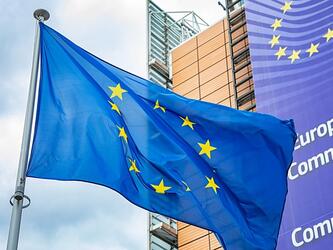De Voogd on polling Europe
As TNS signs up for a €65m, four-year contract (see today’s news story) to run the European Union’s Eurobarometer survey, we speak to Leendert de Voogd, head of TNS political and social, about the challenges and opportunities that such a huge research project presents.
What are the challenges that make this project unique?
This is one of the biggest contracts in the world, and certainly in political and social research. It was established first in 1974, at a time when the European Union was composed of nine countries. We're now up to 27 countries, and the survey covers several more that aren't members.
We are now covering 44 different languages, so we are not only covering the 23 official languages of the EU but also interviewing people in their local regional languages, like Catalan in Spain, Russian in Estonia etc, because the Commission has to make it possible for all EU citizens to express their views. It’s become a very big tool for the European Commission to help them draft their policy, to assess these drafts among public opinion in Europe, and to keep an eye on public opinion mood across Europe.
What’s also very special about this contract is it’s all face-to-face surveys, which sets it apart when everyone’s talking about online research. This is the way the Commission is doing it because the questionnaire is quite big – each interview takes about an hour – and it’s the only way to have a homogenous data collection mode without entering these endless debates about representativeness of the sample. What makes the Eurobarometer so rigorous and special is that we have something that’s representative of the entire European population, and that’s something quite unique.
What added advantages are there for TNS in holding a contract like this?
It is a very good credential to have. It helps us win similar projects, and it also helps other EU institutions to draft specifications based on the methodologies tested and agreed on in the frame of the Eurobarometer.
It helps us maintain very high quality face-to-face capacities in Europe, at a time when our competitors do not believe that face-to-face is the future anymore. Having a high quality field force is a real competitive advantage. It’s something that our clients are really keen to have because they want to focus on minorities, to focus on target groups, and face-to-face is really the only way you can do that, at least in Europe. If you look at what’s happening with fixed line penetration rates in Europe you'll see the situation is not that homogenous, to say the least. We strongly believe face-to-face is a way to get the most accurate, reliable results, so we're investing a lot in training our staff in this respect. It can be seen as old-fashioned but you can put some very high quality projects in place using this methodology.
We're also developing very high quality deliverables when it comes to reporting and data processing tools. We've developed tools that are unique for multi-country projects, and we're using them now for most of our large multi-country studies.
The survey has changed a lot over the years – what role do you play in supporting decisions on how it should continue to evolve?
We are in constant talks with the European Commission to evaluate the accuracy and relevance of the methodology in terms of representativeness and in order to help them get results in a very fast turnaround time. We are doing research-on-research in this field, trying to see if we can find new ways to sample, new ways to get things done quicker, but without jeopardising the rigorousness of the tool.
Author: Robert Bain
Related links:

We hope you enjoyed this article.
Research Live is published by MRS.
The Market Research Society (MRS) exists to promote and protect the research sector, showcasing how research delivers impact for businesses and government.
Members of MRS enjoy many benefits including tailoured policy guidance, discounts on training and conferences, and access to member-only content.
For example, there's an archive of winning case studies from over a decade of MRS Awards.
Find out more about the benefits of joining MRS here.













0 Comments